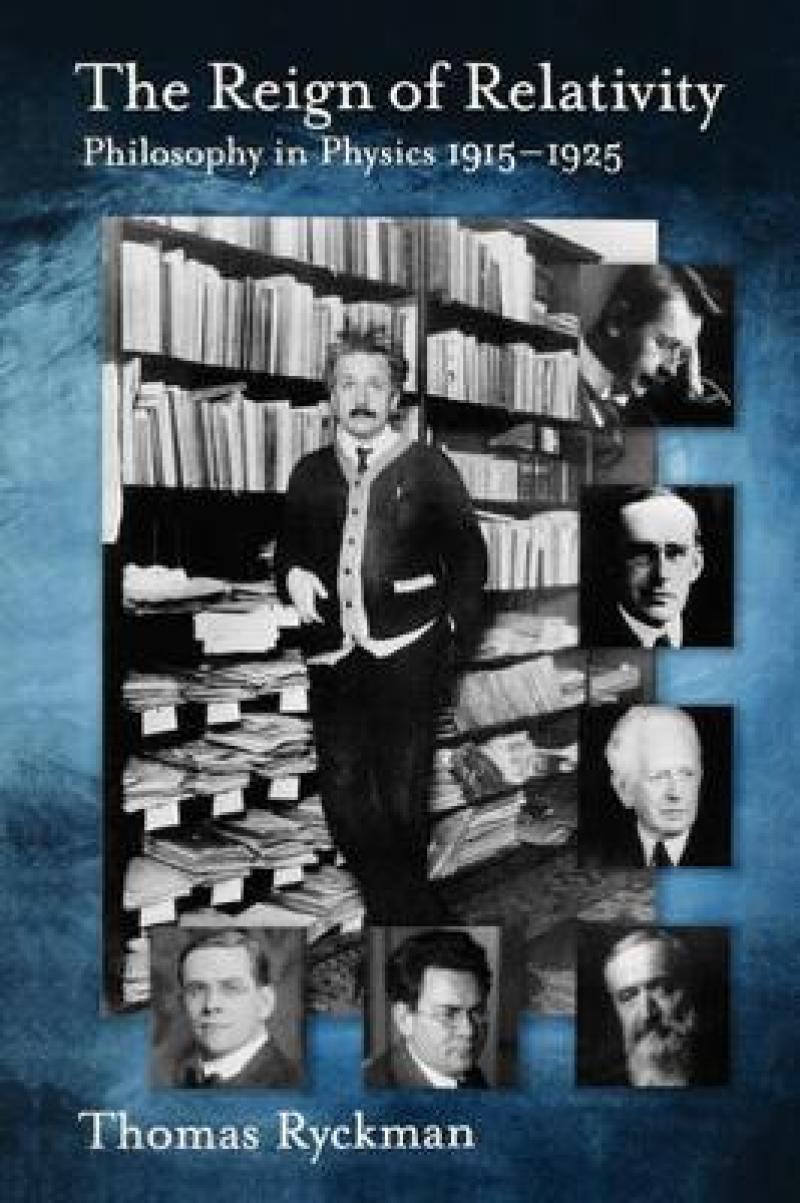rich and timely book...Godel's argument is of great interest for the project of developing anew a transcendental idealist foundation for relativity theory such as Ryckman impressively advocates.
Mark van Atten, Husserl Stud
a treasure of philosophical wisdom and historical information into which everyone who has not delivered his soul to metaphysical realism will do well to delve.
Roberto Torretti, Mind
Einstein's theory of 'general relativity' (1915) was a defining event for 20th century philosophy of science. During the decisive first ten years of the theory's existence, two main ideas dominated its philosophical reception. Ryckman's book is an extended argument that the path actually taken, which became the philosophy of logical empiricism, greatly contributed to the current impasse over scientific realism - whereas new possibilities are opened up in reviving the spirit of the more sophisticated strain, termed transcendental idealism. It also emerges that Einstein, while paying lip service to the former, ended up actually siding with the latter. Ryckman's book appeals to several groups, among them: philosophers of science, historians of relativity, and philosophers of physics.
Les mer
Einstein's theory of 'general relativity' (1915) was a defining event for 20th century philosophy of science. This book is an extended argument that the path actually taken, which became the philosophy of logical empiricism, greatly contributed to the impasse over scientific realism.
Les mer
"This is (or should be) a major "paradigm shift" in contemporary philosophy of science and epistemology. Ryckman masterfully blends usually incommensurable skills in mathematics (differential geometry), physics(gravitational and electrodynamic theory), Husserlian phenomenology, logical empiricism, and neo-Kantianism to rehabilitate post-1916 Einstein discourse on the phiolosophy and strategy of general relativity and unified field theory. Highly
recommended."--CHOICE
"Ryckman shows that the philosophical significance of the general theory of relativity was by no means confined to its appropriation by logical empiricism, but extended far wider to embrace a variety of philosophical approaches under the general rubric of transcendental idealism. Most importantly, perhaps, Einstein's theory was subject to a profound effort at interpretation and development by the philosophically minded mathematician Hermann Weyl, working under
the explicit inspiration of the transcendental phenomenological idealism of Edmund Husserl. Ryckman's book thus points in radically new directions for understanding twentieth century philosophy more
generally, and, in particular, the much vexed question of the relationship between analytic and continental philosophical traditions."--Michael Friedman, Frederick P. Rehmus Family Professor of Humanities, Stanford University
"The Reign of Relativity accomplishes a giant leap forward in understanding where we are in philosophy today. Ryckman studies the profound ways in which the development of twentieth century philosophy (logical empiricism, transcendental phenomenology, and neo-Kantianism) became entangled with the development of general relativity. He locates both an influential series of false steps (especially concerning realism, objectivity and the a priori) and
also a corrective, drawing the latter from the writings of Cassirer, Eddington and Weyl. No one has treated these figures more masterfully, nor made them more relevant to today's philosophical concerns."--Arthur
Fine, Professor of Philosophy, University of Washington
"A rare combination of philosophical wisdom and mathematical expertise, Ryckman's book throws light on a remarkable period of the history of Relativity Theory, which has too long been hidden under the rubbish poured on it by unsympathetic writers. The work of Einstein's successors Hermann Weyl and Arthur Eddington and their links to the philosophy of Husserl are insightfully displayed here with a view to giving it a role in current and forthcoming theoretical
physics."--Roberto Torretti, Professor Emeritus, University of Puerto Rico
"This is (or should be) a major "paradigm shift" in contemporary philosophy of science and epistemology. Ryckman masterfully blends usually incommensurable skills in mathematics (differential geometry), physics(gravitational and electrodynamic theory), Husserlian phenomenology, logical empiricism, and neo-Kantianism to rehabilitate post-1916 Einstein discourse on the phiolosophy and strategy of general relativity and unified field theory. Highly
recommended."--CHOICE
Les mer
Thomas Ryckman received his Ph.D. in Philosophy from Columbia University in 1986. He has taught philosophy of science at Wesleyan University, The University of Illinois at Chicago, Northwestern University, the University of California, Berkeley, and Stanford University. He lives in San Francisco.
Les mer
Produktdetaljer
ISBN
9780195177176
Publisert
2005
Utgiver
Vendor
Oxford University Press Inc
Vekt
658 gr
Høyde
229 mm
Bredde
152 mm
Dybde
22 mm
Aldersnivå
P, 06
Språk
Product language
Engelsk
Format
Product format
Innbundet
Antall sider
330
Forfatter
